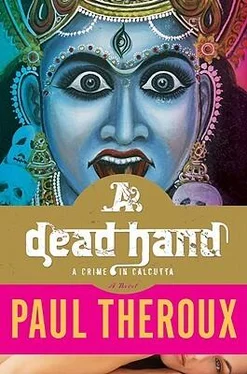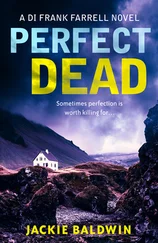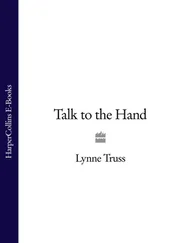You see what I mean about the grammar and the presumption?
My son loves your writing and in a way you're responsible for his coming to India. I think he's read everything you've written. He has learned a lot from you and so have I. I have to admit I get a little jealous when he talks about you, but the truth is that the written word is so persuasive he feels as if he knows you, and I guess I do too. Consider yourself one of the family. We have read many of your travel pieces, and shared them with our globe-trotting friends.
A little bit about me. I am an entrepreneur, with homes in New York and Palm Beach, and my hobby for many years was interior decoration — doing it for my friends. They encouraged me to start my business. Doing something you love is always a good way of being successful and I think it happened to me. My son joined me in the business. By the way, I have always felt that it would be a wonderful challenge to decorate a writer's studio — I'd love to do yours.
I come to India to oversee my charity, which is to do with children's welfare, and also to look for fabrics — linens, silks, fine cottons, floor coverings and textiles of all kinds, old and new. I often do walls in fabric, cover them with a lovely silk, it's become a signature with me. I am buying at the moment. I could show you some really exquisite pieces.
Now comes the hard part. First I need your utmost discretion. I am asking you to respect my confidence. I am writing to you because, based on your close relationship with the U.S. Consulate, I feel you can be trusted. It is also incredible luck that we are both in Calcutta at the same time, as though somehow preordained, our paths crossing like this. If it turns out that you have no interest in what I have to say next, please destroy this letter and do nothing more and — regretfully — I will never communicate with you again.
But I am counting on you to help me. Given your wide experience as a traveler, I don't think there is anyone else who could be as effective as you in this sensitive matter.
Here is the problem. My son's dearest friend, who is an Indian, believes he is in serious trouble. He normally stays with us, but because we were traveling and buying after Durga Puja he was staying at a guesthouse near Chowringhee, not a very nice place but you know what fleapits these little Indian hotels can be. He was there for a few days and then, like a scene from one of your stories, he woke up one night and found a corpse in his room — a dead boy on the floor. He was frantic. He had no idea how it had gotten there. He didn't know what to do. If he told the hotel they would accuse him of murder. How could he explain the presence of this dead body?
He then did a very silly thing, or at least he said he did. He packed his things and left without checking out, and he hid. Calcutta as you can imagine is not a hard place to hide in. I have spoken to him about this but the fact is that he is terribly afraid of what will happen to him if he is found and somehow connected with that dead body.
Of course I am also worried that my son will be associated with this business and my worst nightmare would be for my son to end up in an Indian jail.
We are planning to leave India at the monsoon, but first I want to make sure that my son's friend is safe. I could not live with myself if I abandoned this poor boy. I know I have the resources to help him and it would be criminal if I did not do so.
I have given you no names or dates or helpful facts. This is deliberate. I must use discretion. If you think you can help and want to know more, please get in touch with me at my cell phone number above and perhaps we can have a chat. Perhaps at the Grand? Given the parameters of my problem, I would not blame you if you just tore up this letter and went your merry way. If that is so, thank you for reading this far. Bottom line, whatever you decide, my son and I will continue to read you.
Warmly,
Merrill Unger (Mrs.)

SHOULD I HAVE BURNED the letter? I didn't. I kept it. I reread it. I was, as jokers say about wines, amused by its presumption.
Even with the boasting, the bad grammar, the clichés, and that awful word "parameters," I was flattered. The handmade paper, the letterhead, the handwriting, it all fascinated me. Had it been a man's letter, I might have tossed it aside. But it was from an American woman, with the lovely name Merrill, in Calcutta like me, offering me a story. And I was far from home with time on my hands, needing a story. My lectures were done: "Your time is your own from now on," Howard, the public affairs officer, said. It seemed like a hint that I should pursue Parvati. She was lovely and gifted, but her whole life lay ahead of her, and mine was mainly in the past.
Yet it seemed that a little vacation had opened up, with the uncertainty and emptiness — and, I felt, pointlessness — of holidays, which in foreign places always left me at loose ends. Because the consulate had sponsored my talks at Calcutta schools and colleges, I had been looked after up until now. I didn't like the thought of having to fill my days with occasions. Why not have a drink with this Mrs. Unger?
I was not persuaded by the letter; it seemed too colorful not to be a setup. But I was curious. I had nothing else to do. This was a blank period in my trip, and in my life. My hand had gone dead too; after that arresting opening about the atmosphere having the tickle and itch of a bulging vacuum cleaner bag, I could not continue. I'd thought I had something to write. I'd never had a dead hand before. I assumed that any day now the mood would strike me, but so far my head was empty. I endured the racket of the city from my cheap hotel and fantasized about places like the Oberoi Grand, and I smiled and didn't write and felt mind-blind.
At my age, after all that hack work, it was possible that my condition was permanent. The young feel an affliction but always assume they'll overcome it: a young person encounters an obstacle or a block yet never believes it can last, in fact cannot even imagine extinction or utter failure. I had felt that, but no longer felt the warmth of this hope. Now I knew that the climacteric occurs and there is no going back, you're losing it, it's downhill all the way. Your poor eyesight does not improve, there is no hope of your ever matching your earlier stride, and you won't regrow that hair. For the writer I was, there was a chance that the barren period would continue, that I was written out, that I had nothing more, and worse, because the work I had done was not much good, I'd never have a chance to redeem myself. It was probably over.
This sense of diminishing hopes had been with me ever since I'd come to India, when Howard had asked, "What are you working on?" I hadn't the heart to say "Nothing." I said, "I've got an idea," and that brought me low — my lying always made me sad and self-pitying. Why was I telling him a lie? Because the truth would have shamed me. Obviously having an idea mattered to me or else I wouldn't have concocted a lie. I was not fatally wounded; it was simpler and a lot less dramatic than that: I had nothing to say, or if I did have something, I had no way of saying it. "Dead hand" was a devastating expression for writer's block, but in my case it seemed a true description of what I was facing, a limpness akin to an amputation.
One of my writer friends, a real writer, a writer of good novels, knew Nelson Algren, the great chronicler of Chicago. No one talks about him now, but his books were celebrated once, and electrifying to me. Just the sonorous titles— The Man with the Golden Arm, A Walk on the Wild Side —I heard these titles and thought he had to be a writer to his fingertips. Algren was a Chicagoan himself. He'd had an early and voluptuous success. He'd had an affair with Simone de Beauvoir, in effect making Jean-Paul Sartre a cuckold. He was a great gambler. He was a lone wolf. He'd had an enviable career. He lived simply in a small apartment, but even so he invited my friend and his wife to stay with him on their visit to Chicago.
Читать дальше













